As active football players and fans, we often get so immersed within the game that we tend to forget to look after about some of the vital components that make the beautiful sport what it is.
Today’s article shall pay particular focus to the soccer balls that get kicked and rolled on the pitch, with special emphasis on why their condition slowly deteriorates.
Let’s start with a short answer summary on why these objects lose air pressure over time.

Soccer balls lose pressure over time because they are not air tight. The inner bladder and valve components of a ball leak air gradually over its lifespan and, improper aftercare such as playing on unsuitable surfaces; inflating the ball to the incorrect pressure and failing to deflate when storing also contribute to gradual air loss.

Want to test your knowledge on soccer ball care?
Take the quiz by clicking the button below and see just how informed you truly are!
Note - You'll need to enter your email address to see the final results.
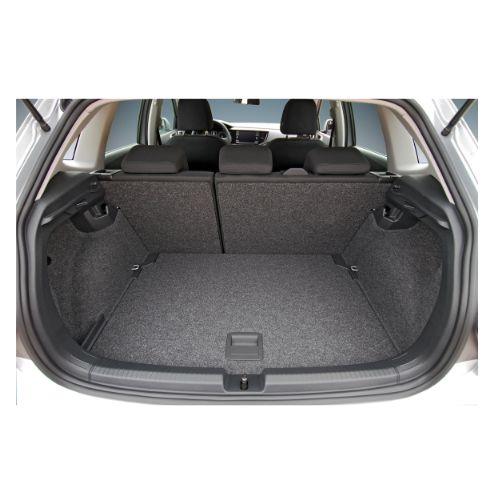


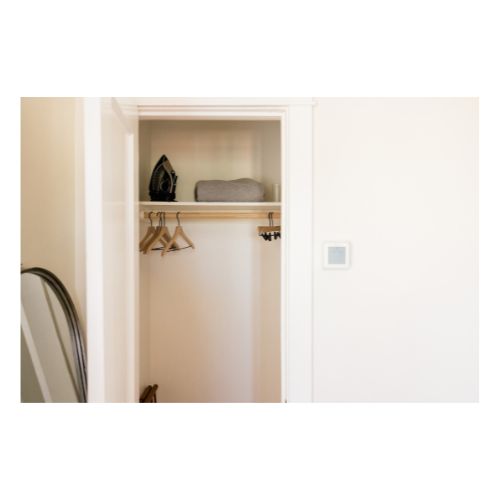
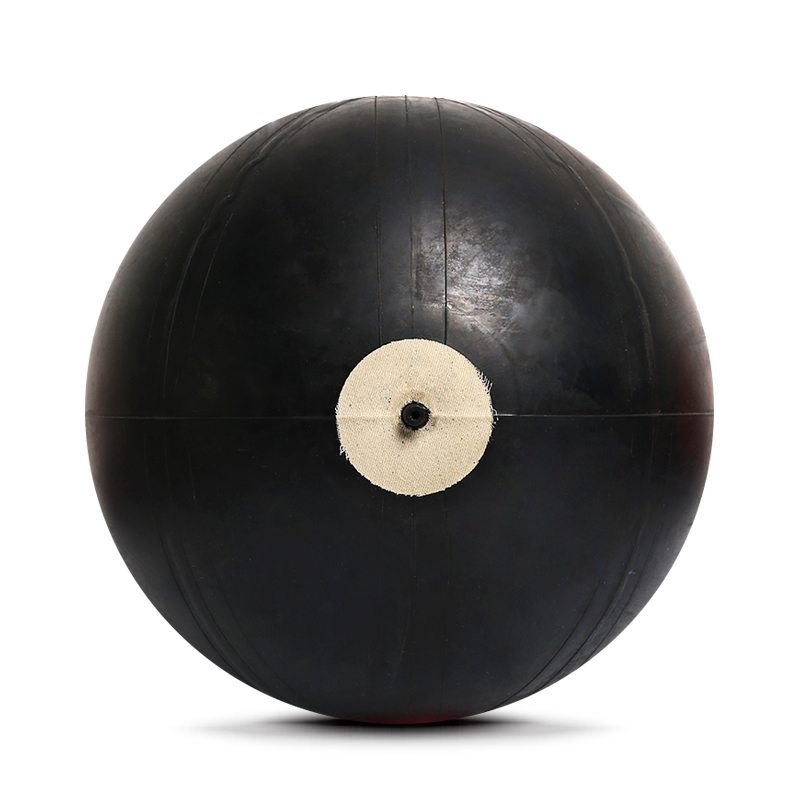


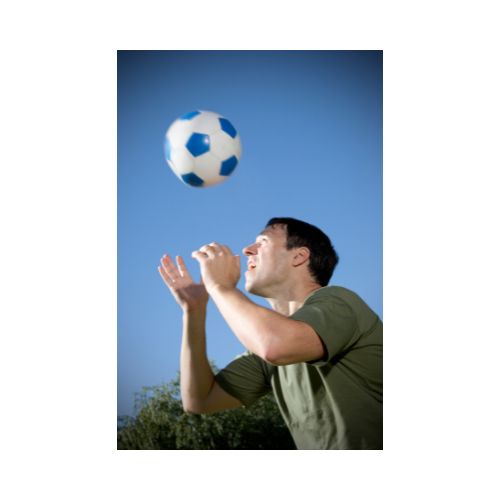
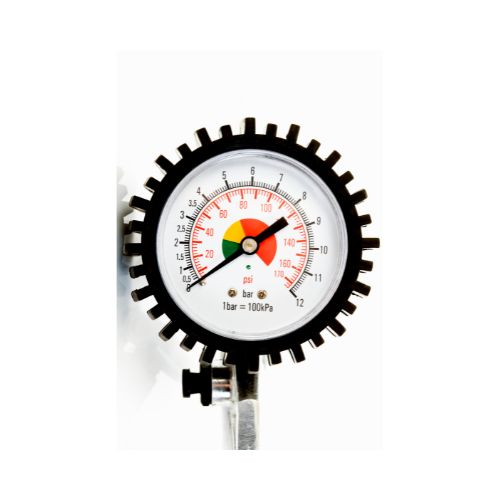


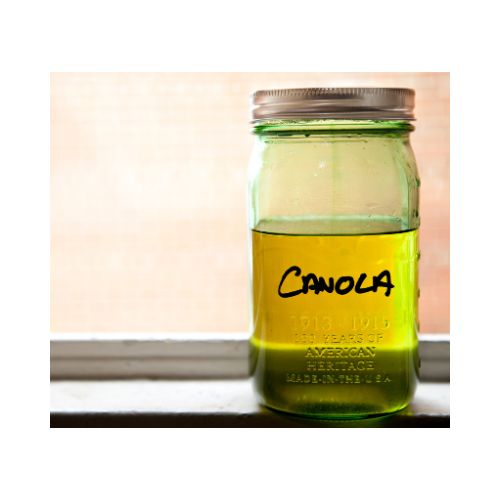
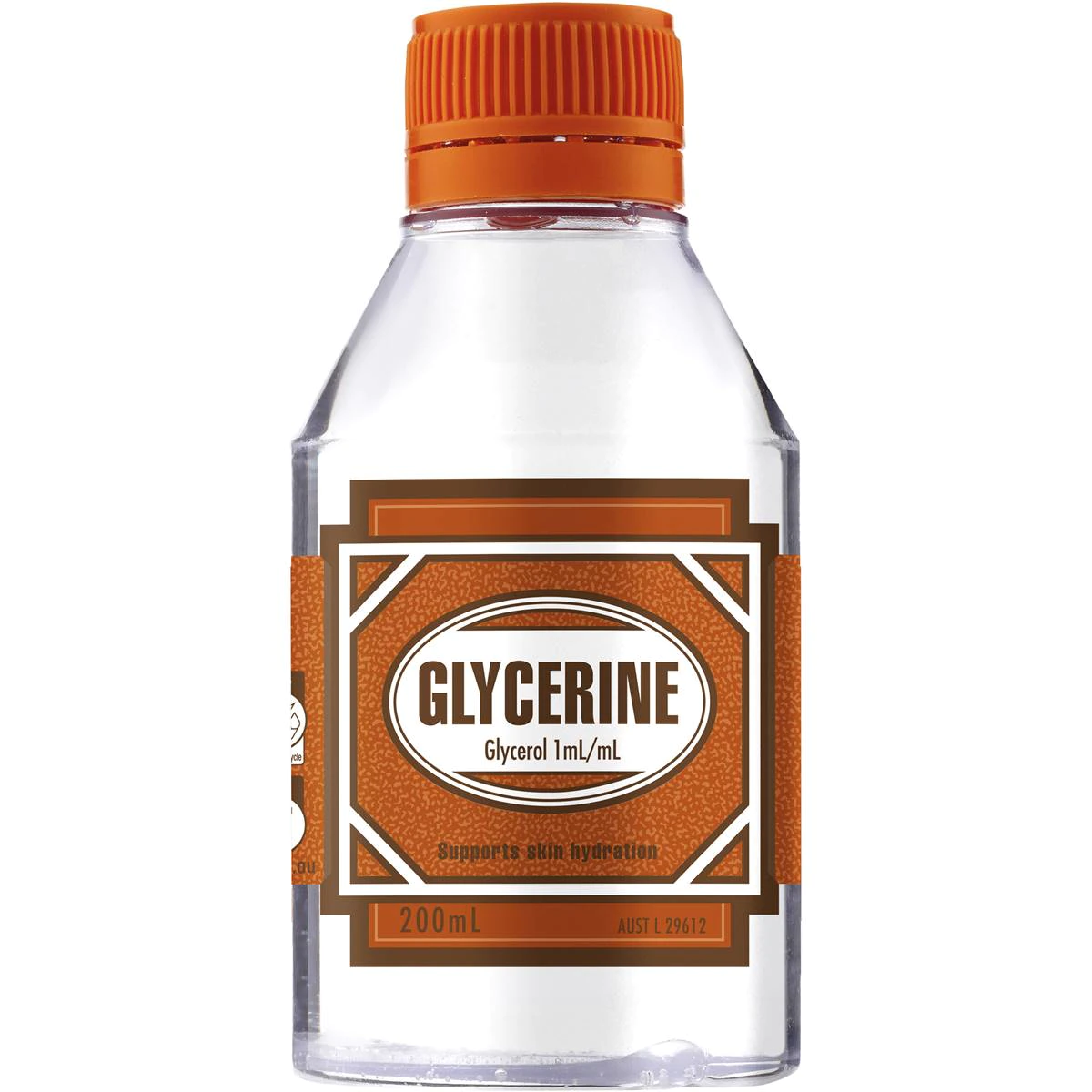

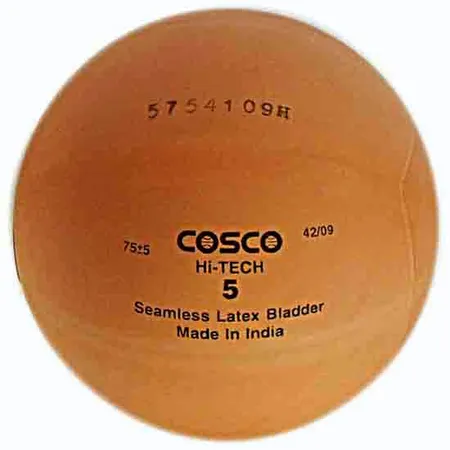


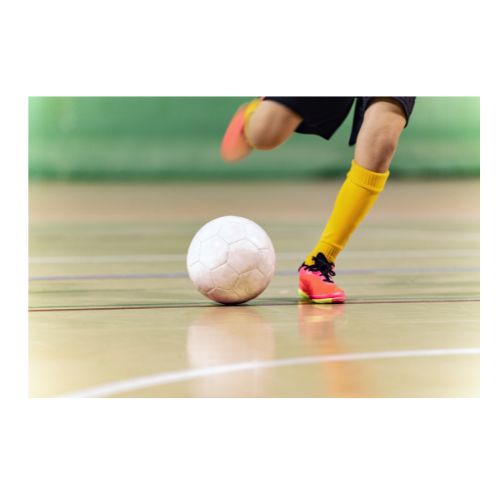
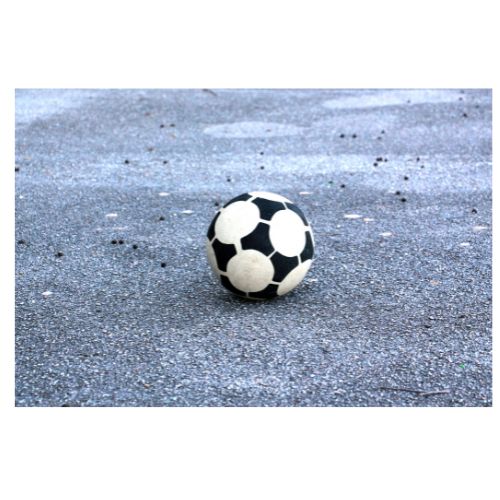





Let’s now look at these things in more detail.
Ball material is not air-tight
Footballs have an internal component called a bladder which is used to hold the air together inside it.
I’ve gone into greater depth about this within my best soccer balls article which you can check out.
But the quick gist of things here is that butyl and latex type bladders are both unable to keep all the air trapped inside for the entire lifespan of the ball.
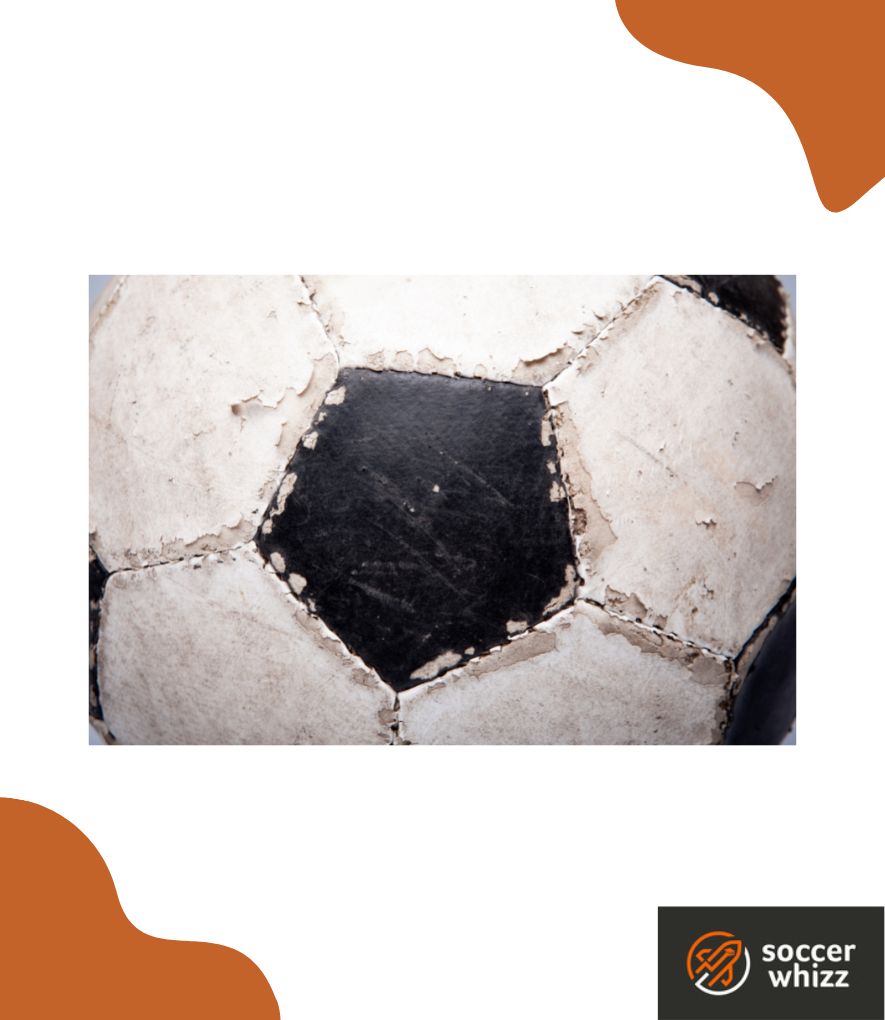
Although it must be said that the former material is more adept at air retention than the latter.
So, as a result of there being greater air pressure inside the ball than outside of it – due to inflation – there is a battle for equilibrium which plays out.
As the ball is not air tight, stabilization and balance are ultimately achieved by the ball passing out that inflated air over time.
Valve leakage
Additionally, footballs are known to have a valve opening which is used as a pumping mechanism.
I’m sure you’ve heard of a famous movie quote that goes something like…
“What goes in must come out”.
Well, this is actually true when it comes to soccer balls losing air.
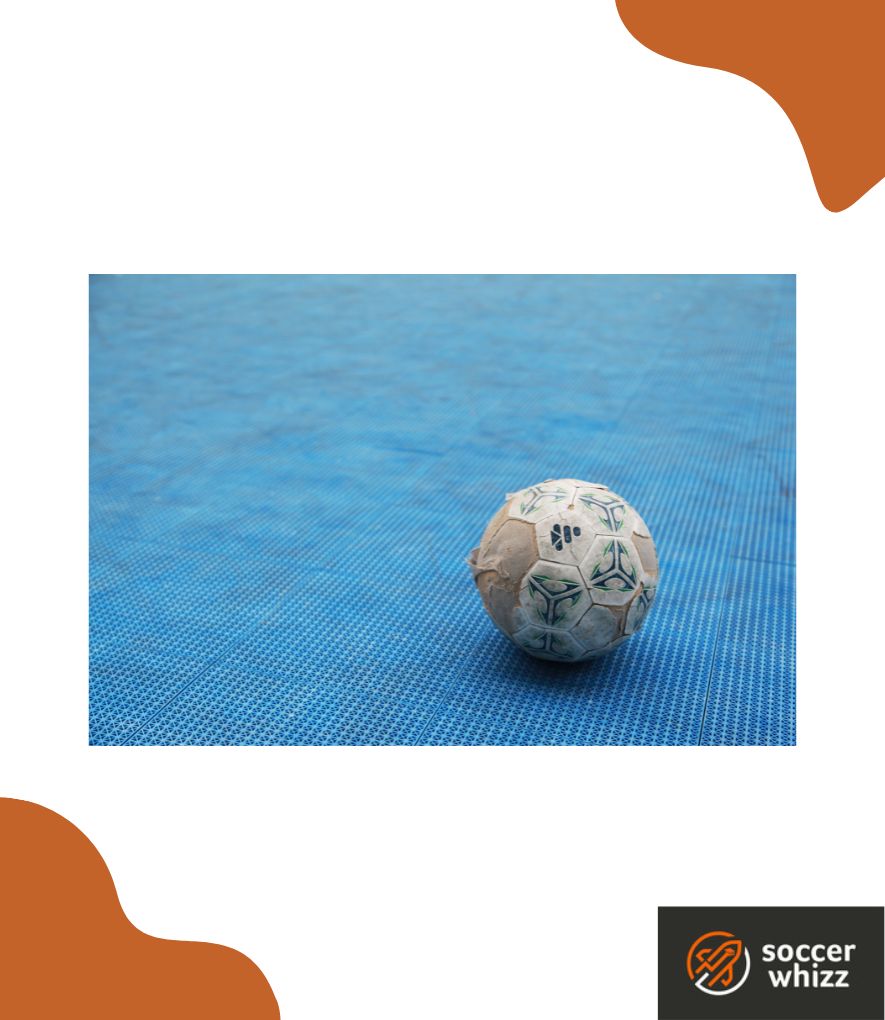
The valve which allows for air to make its way into the football is the same valve that gradually lets air exit from it too.
Keeping your ball in good condition
Now I’m sure you’re probably wondering…
How do I stop a ball from deflating?
So, I’ve outlined a couple of extra tips in this article that – if followed correctly – should prolong the lifespan of any football you buy.
Let’s get down to it!
1. Deflate the ball when storing
Whenever you don’t intend to use the football for a couple of weeks, it’s a good idea to leave it in a deflated state as this relieves the pressure and keeps it strong for the times when it’s actually needed.
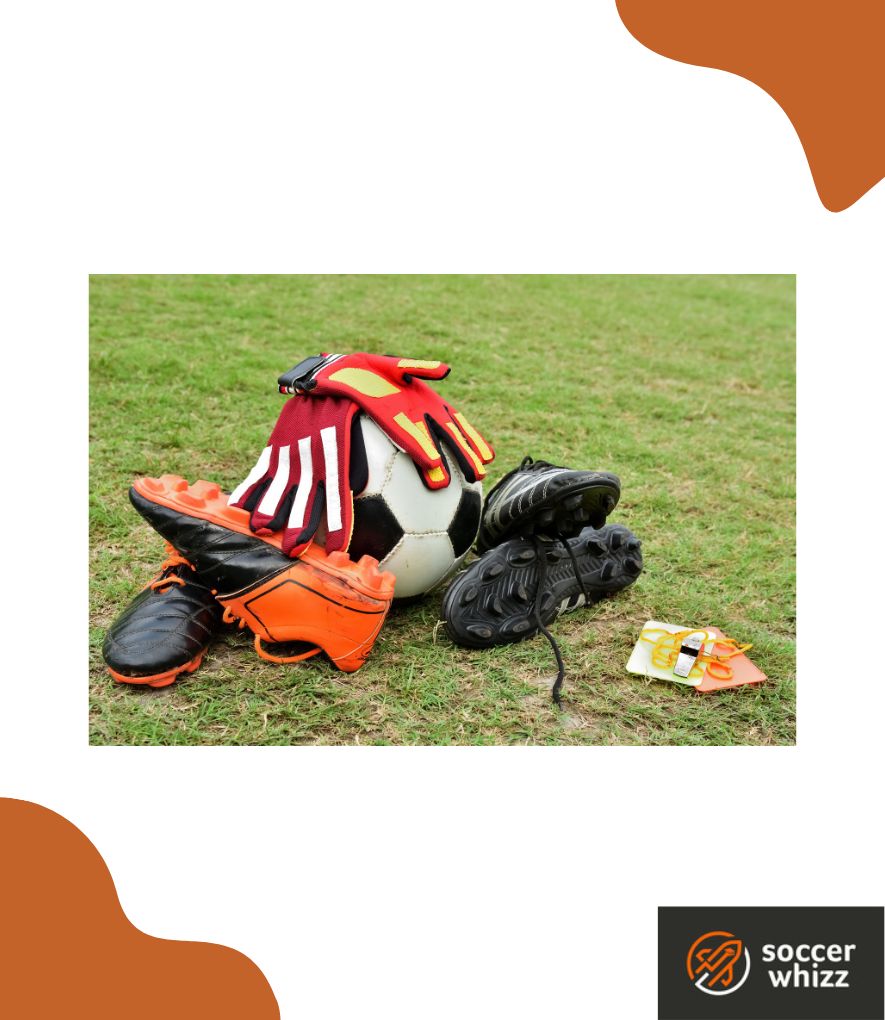
By using a pump, you simply place the accompanying needle into the valve and let the ball pressure leak out.
Check out my more in-depth article on soccer ball storage, as it provides greater insight into how storing a ball correctly preserves its lifespan.
2. Use the ball on suitable surfaces
Don’t be one of those people that plays with a soccer ball on concrete, gravel or asphalt!
It certainly won’t do your ball any good.

Stick to surfaces like grass and artificial turf, as these are the kinds of terrain that your soccer ball was designed for.
3. Inflate to the correct pressure
A lot of manufacturers use fine print to indicate how much air needs to be inserted for optimal ball performance.
So, have a keener eye and take a look at the stated pressure level on your soccer ball.

FIFA’s own regulations specify that a size 5 ball should not exceed 15.6 pounds per square inch (PSI).
But I’ll also drop a brief video where you can see things in action for yourself:
4. Try some soccer ball sealant
In a case where your ball has a tiny puncture and you’ve identified the opening by submerging it in water, you can use a ball repair sealant to fix the air leakage.
Spray the sealant into the ball through the valve and allow for an even distribution of the liquid throughout the bladder by bouncing the ball a couple of times.
5. Ensure proper valve care
The needle that is usually inserted into the valve is slightly sharp and if the opening is not smooth enough to penetrate through, the outer material of the needle can puncture the inner lining of the valve.
Therefore, you’ll want to make sure that the valve opening is well lubricated with silicone or glycerine oil whenever you’re attempting to inflate it.
Conclusion
This article should have educated you on why soccer balls lose air.
In case you didn’t manage to pick up on that, I’m going to leave you with a short summary that should be easy enough to remember…
Soccer balls lose air pressure over time firstly because the outer material construction is not air-tight, meaning that over a certain duration of time the air will gradually seep out. More so, air leakage occurs due to the presence and nature of the valve opening, which is used to inflate the ball in the first place.
If you don’t want to extend its use by re-inflating, then just consider recycling it.
On a separate note, the topic of how long your soccer ball will last without losing air is pretty much dependent on your own playing experience.
Finally, before you go, you should check out our eBook on Soccer Ball Care.
Within this monster of a resource, we tackle all there is to know about looking after a soccer ball and maximising its useful life right from when you purchase this type of product.
This eBook covers a plethora of different topics, such as:
- soccer ball construction;
- inflation and pressure management;
- cleaning and maintenance;
- soccer ball storage; and
- how to extend the useful life of your ball
In just a couple of hours, you’ll have more knowledge on what is good and bad for your soccer ball than you could ever fathom!
You’ll learn how to inflate your soccer ball to the correct level of air pressure based on the size of ball you have, as well as know how to clean and store your soccer ball properly after games.
But I don’t think there’s anything better than being able to effectively troubleshoot problems with your soccer ball and fix them yourself!
So, you can finally take care of your soccer ball for many months to come, which without a doubt will save you time and money as won’t be searching for and buying a replacement any time soon.
With just one click…
Grab yourself a copy right now for only $29!
If you enjoy the content that I create and would like to buy me a coffee, then I’d really appreciate it!
Any money that I earn through this donation will be re-invested into more content for this website.
Additionally, by sending in a donation you’ll also receive a copy of my recently released 190+ page eBook on Soccer Ball Care, as well as be subscribed to our mailing list where you’ll be regularly informed on the latest developments concerning the Soccer Whizz blog.
- Future Icons: Europe’s Emerging Midfield Maestros Set for Glory - December 4, 2023
- Kickstarting a Revolution: How Soccer Transformed the United States Over the Last Four Years - October 7, 2023
- 4-1-4-1 Soccer Formation [Analysis] - September 23, 2023


